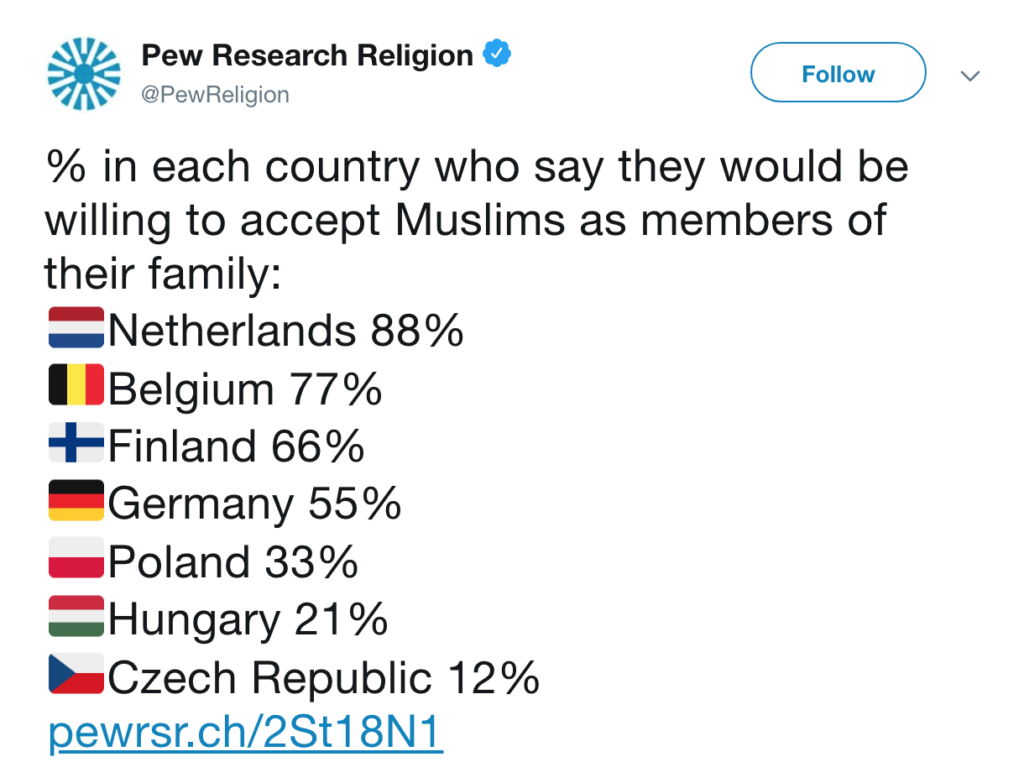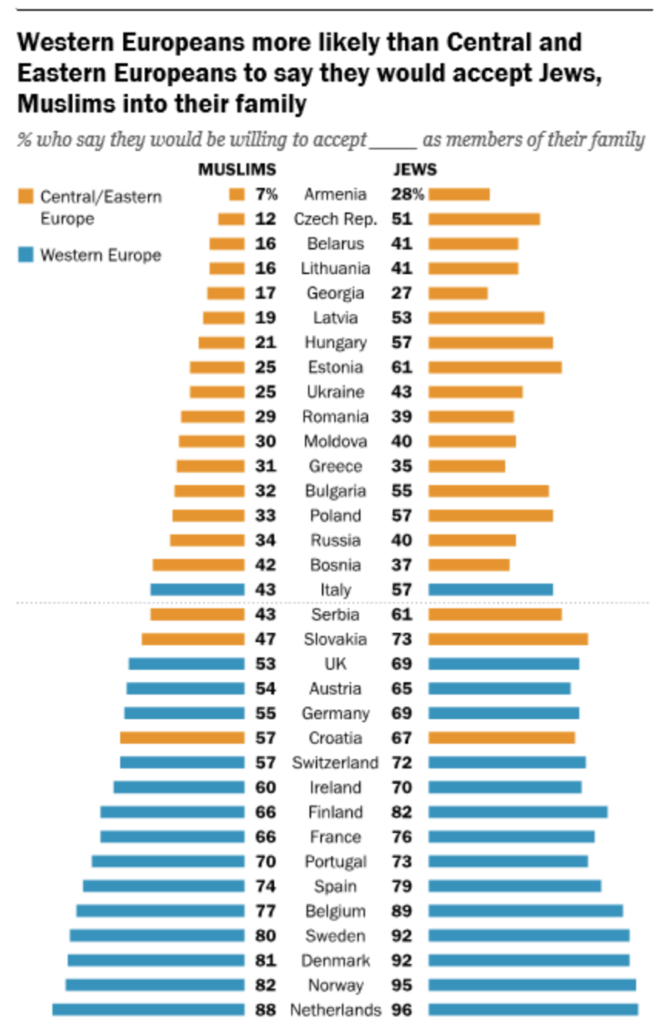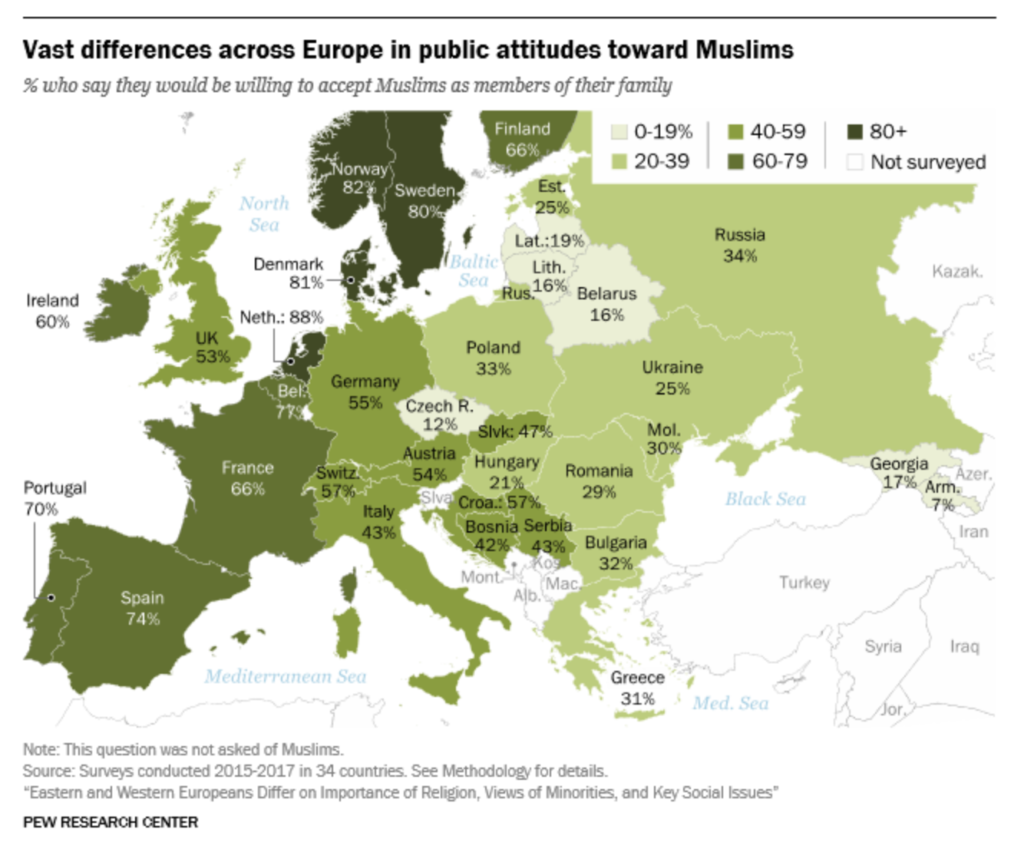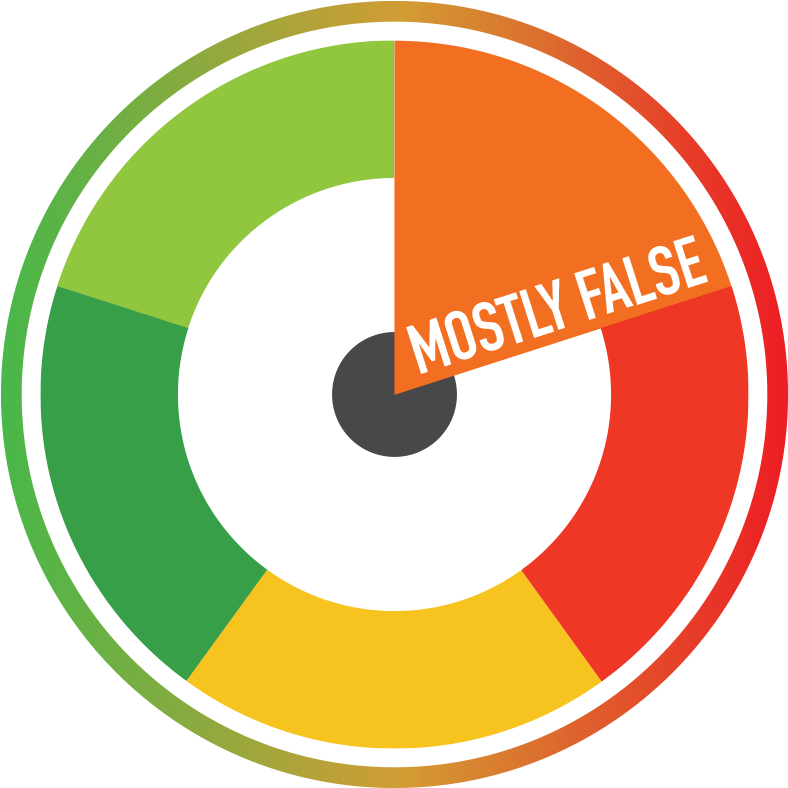According to an article posted by the Dutch newsblog ‘De Dagelijkse Standaard’ on the 1st of February 2019, The Netherlands is the country in Europe that welcomes muslims the most. The claim turns out to be mostly false.
The information comes from a report by Pew Research Center that posted the results of their research on their Twitter account on the 30th of January 2019. The same research was used in an article from Belgian newspaper De Standaard. In this article the results were translated for the readers but the journalist did not conclude that The Netherlands is the least anti-muslim country in Europe. De Standaard only reported the results of the research.

The report was produced bij Pew Research Center as a part of the Pew-Templeton Global Religious Futures project, which analyzes religious change and its impact on societies around the world. The research was conducted between 2015 and 2017 but was released with new results from research in Slovakia.
Muslims in your family?
Market research company GfK Belgium did the research in Western Europe and Slovakia with an average of 1500 respondents per country by telephone. In Eastern Europe the research was done by Ipsos MORI, Institute for Comparative Social Research (CESSI) and Georgian Opinion Research Business International (GORBI) with an average of 1400 respondents per country with the difference that the results were collected by face to face interviews. Oversampling was done in some countries to boost the sample size of smaller subgroups.
The question Pew asked the respondents was: “Would you be willing to accept jews/muslims as members of your family/neighbours?” The results of this report were that The Netherlands is the most accepting of muslims with a total of 88%. Followed by Norway with 82% and Denmark with 81%.

Social acceptance
Veerle Van Assche, doctor in social and political sciences at AP University college, says that the report was done well but that 1400-1500 respondents is rather small. She also stated that there is a difference between the results of interviews done face to face or by telephone. Van Assche also says that the key question that Pew asked the respondents doesn’t relate to the quote that De Dagelijkse Standaard published on their website. Therefore stating that the Dutch are the least anti-muslim is a blunt conclusion. She does confirm that the research centers who cooperated are renowned.

Marco Van Hagenborg, head of department at Unia, an independent public institution which combats discrimination, stated that their is an anti-muslim political party in The Netherlands that got a lot of votes which proves that there is stil a lot of intolerance. He also says that the countries in Eastern Europe experience more problems with the border conflict and that the political parties campaign against migration. Therefore it’s more socially accepted to be against muslims. He also questions the research strategy. Unia did their own research by asking indirect questions to avoid their respondent answering in a socially accepted way rather than answering truthfully.
In short, the method used for this research is acceptable but can always be done more refined. As for the claim from De Dagelijkse Standaard we can say that it’s mostly false as the information is used and interpreted differently than in the actual research.
Leave your comments, thoughts and suggestions in the box below. Take note: your response is moderated.





